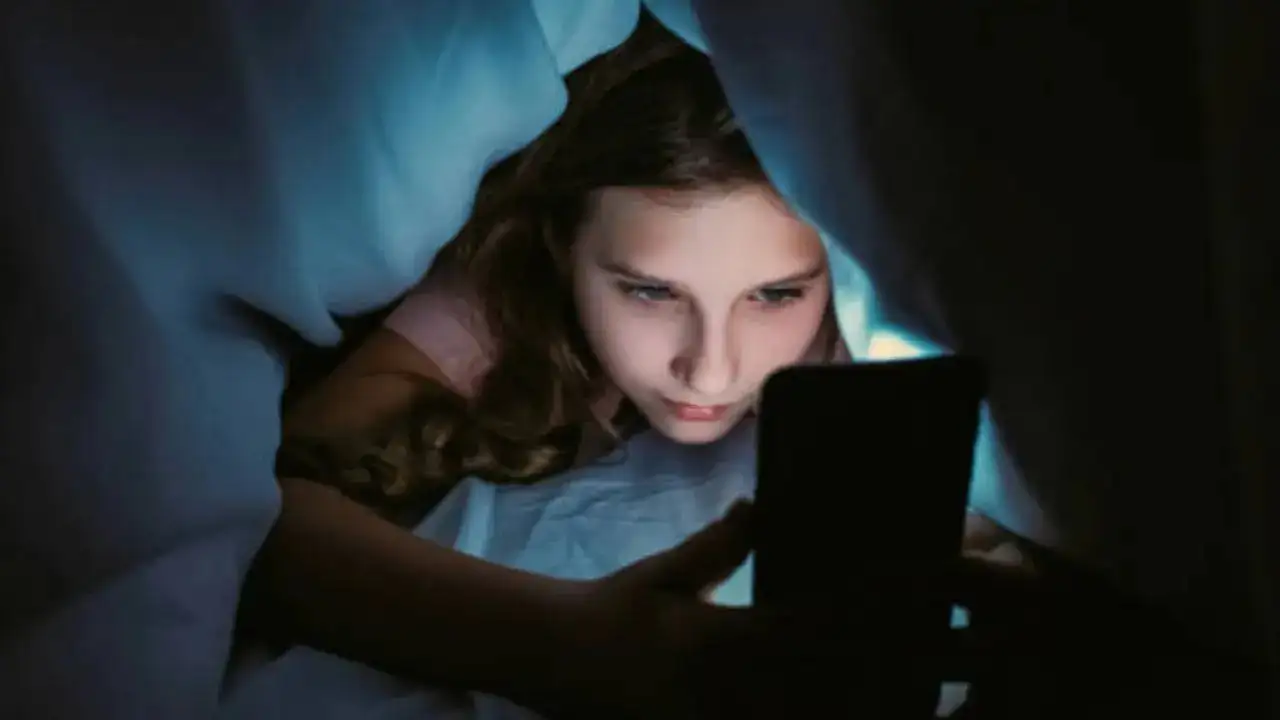
Health Quiz: Excessive Screen Time Can Lead To Deficiency Of Which Hormone? (Image Credits: iStock)
Excessive Screen Time Can Lead To Deficiency Of Which Hormone?
A. Insulin
B. Melatonin
C. Cortisol
D. Serotonin
Answer: B. Melatonin
Spending hours in front of a screen — whether it’s a phone, tablet, or laptop — especially during nighttime, can affect your sleep and mood in ways you might not expect. One of the major consequences of excessive screen time is a reduction in melatonin, a key hormone responsible for regulating your sleep-wake cycle.
What Is Melatonin?
Melatonin is a hormone released by the pineal gland in the brain, mostly in response to darkness. It signals the body that it’s time to sleep. “Melatonin is the hormone of darkness — it doesn’t put you to sleep, but it tells your body that sleep should be happening soon,” says Dr Michael Breus, a clinical psychologist and diplomate of the American Board of Sleep Medicine.
Why Does Blue Light Matter?
Screens emit blue light, which can trick your brain into thinking it’s still daytime, thus delaying melatonin release. “Blue light is especially potent in suppressing melatonin,” explains Dr Charles Czeisler, a professor of sleep medicine at Harvard Medical School. “Even brief exposure in the evening can shift your circadian rhythm by several hours.”
A 2014 study in PNAS found that using electronic devices before bed not only delays melatonin production but also reduces next-morning alertness and REM sleep quality.
Signs You Might Have Melatonin Deficiency
- Difficulty falling asleep
Poor sleep quality
Daytime fatigue
Mood disturbances like anxiety or irritability
Trouble concentrating or memory issues
According to Dr Lisa Medalie, a behavioural sleep medicine specialist at the University of Chicago, “When melatonin levels remain low due to continuous nighttime light exposure, people often develop chronic sleep onset insomnia and struggle with mood regulation.”
Who Is Most At Risk?
Melatonin suppression from screen time is especially common in:
Teenagers with late-night gaming or TikTok habits.
“Children and teens are even more sensitive to blue light than adults,” adds Dr Czeisler.
How To Protect Your Melatonin Naturally
Sleep experts recommend these habits to protect your melatonin rhythm:
Digital Curfew: “Avoid screens at least 90 minutes before bed,” says Dr Breus. “Use that time to relax and engage in non-screen activities.”
What About Melatonin Supplements?
Melatonin supplements are available over the counter, but experts caution they are not a cure-all. “Melatonin works best for shifting sleep times—not necessarily for making you sleep deeper or longer,” says Dr Andrew Weil, integrative medicine expert. “It’s most useful for jet lag or circadian rhythm disorders, not general insomnia.”
Long-term use should be supervised by a healthcare provider to avoid disrupting your natural hormonal balance.
If you’re struggling with sleep and spending long hours on screens, your melatonin might be out of sync. Adopting healthier screen habits and prioritizing sleep hygiene can help restore natural hormone balance and improve your overall well-being.
Get Latest News Live on Times Now along with Breaking News and Top Headlines from Health and around the world.


